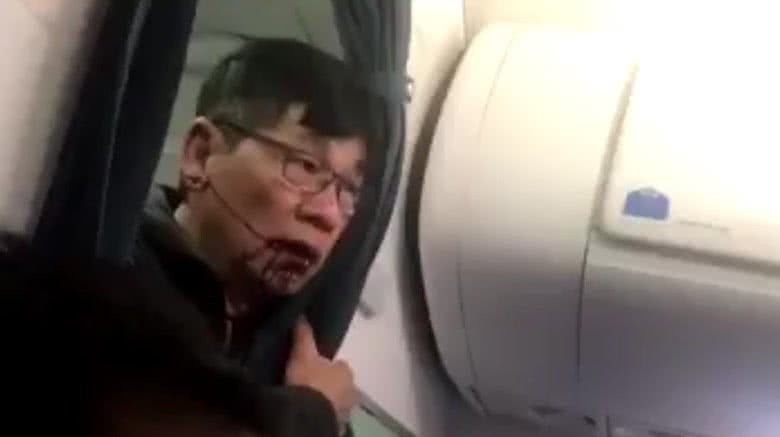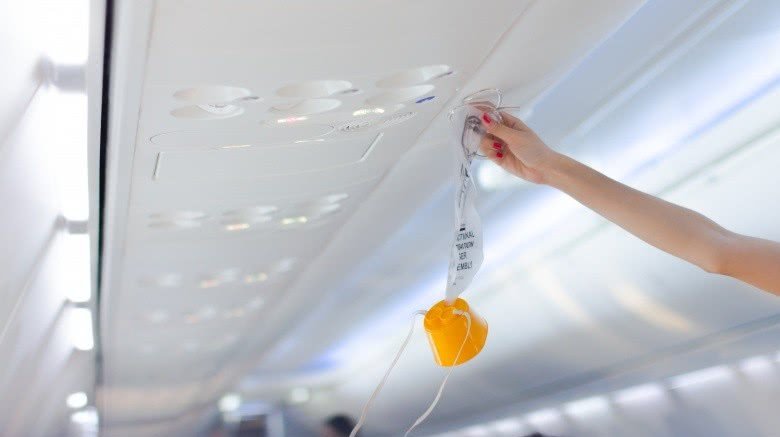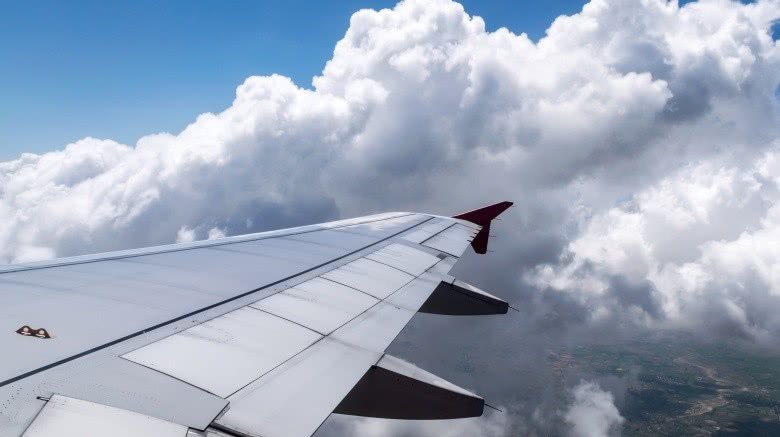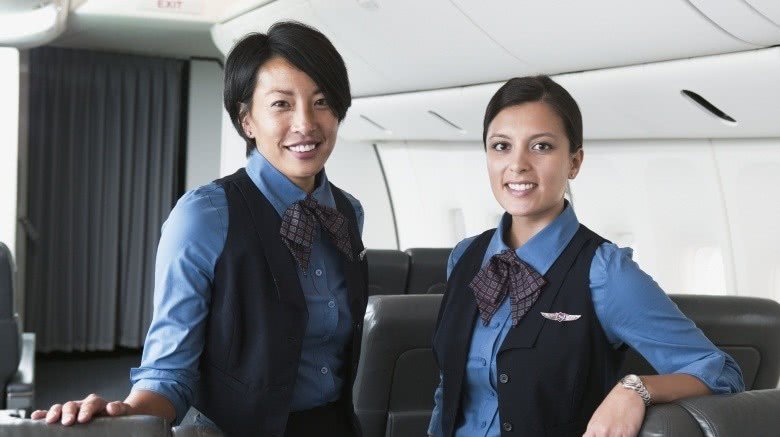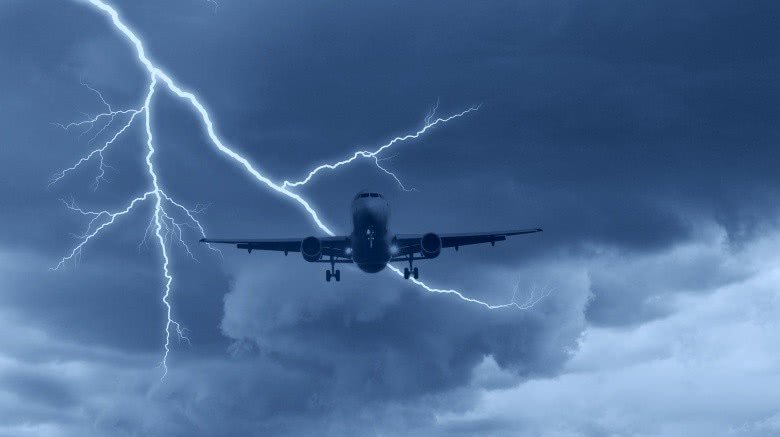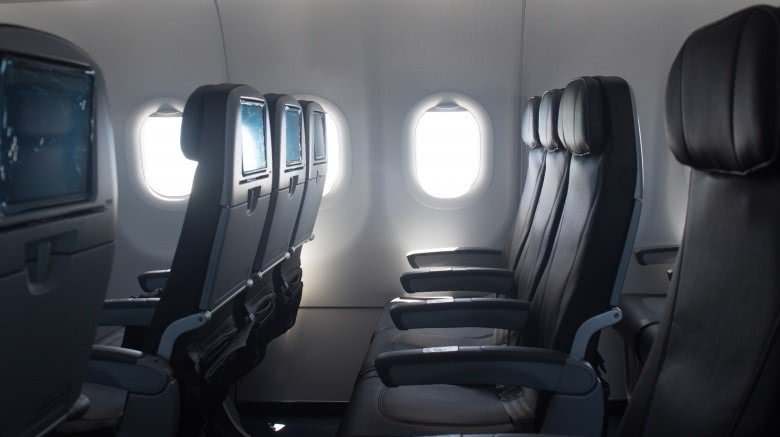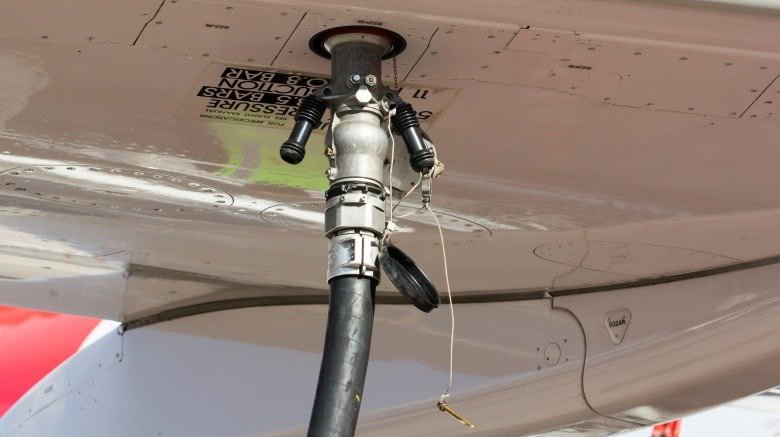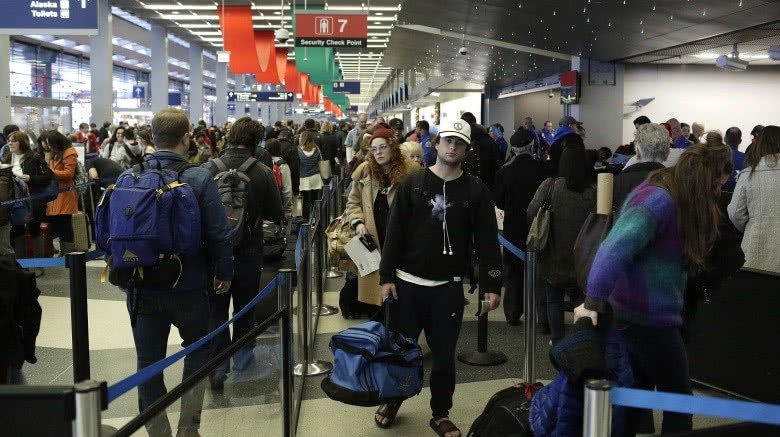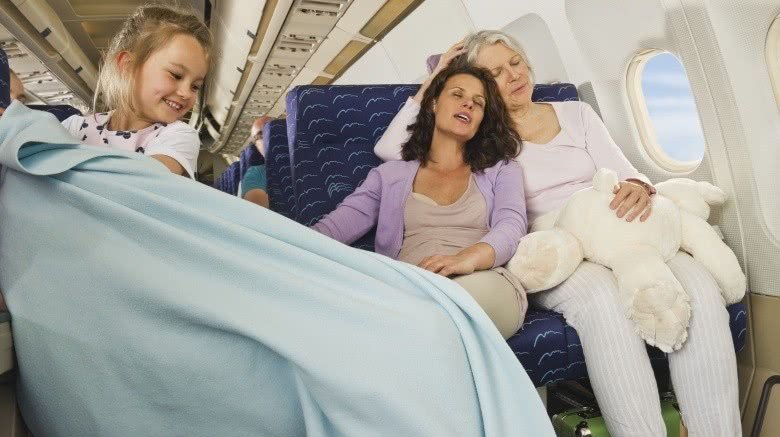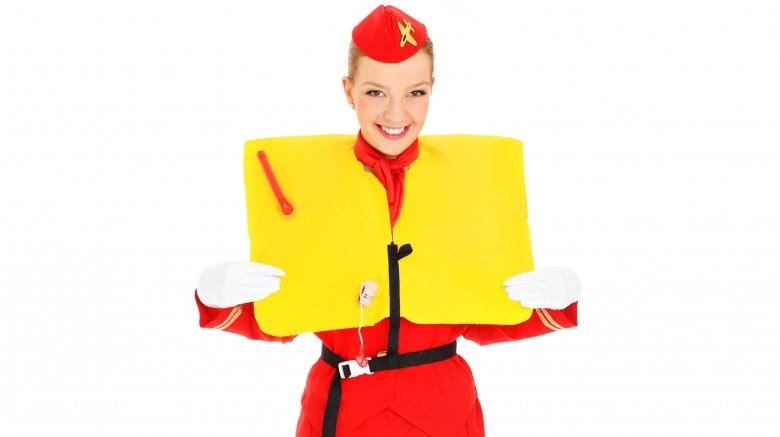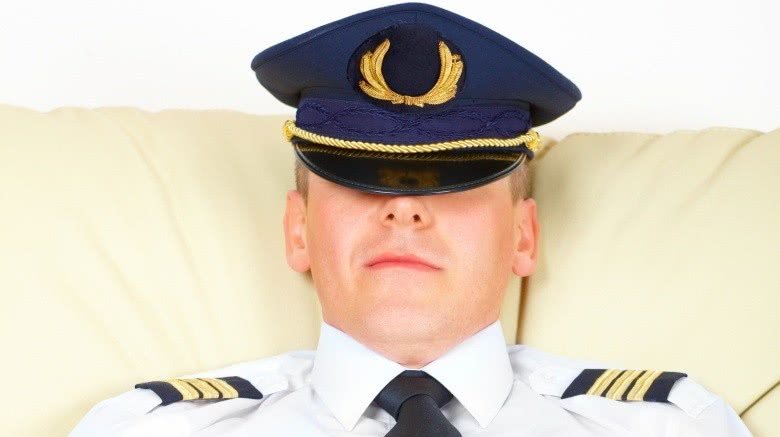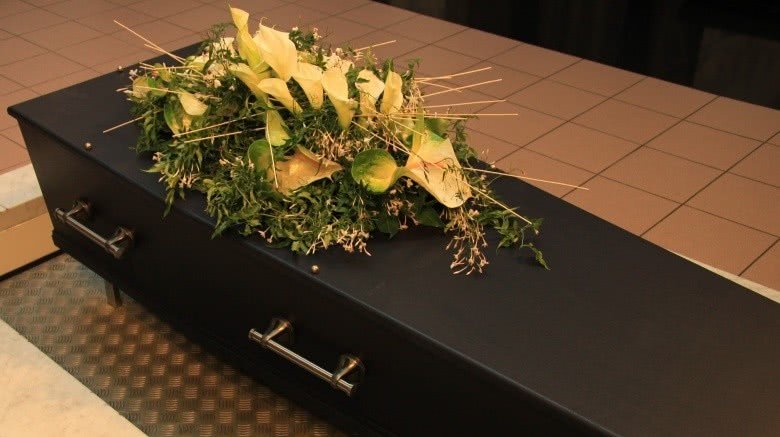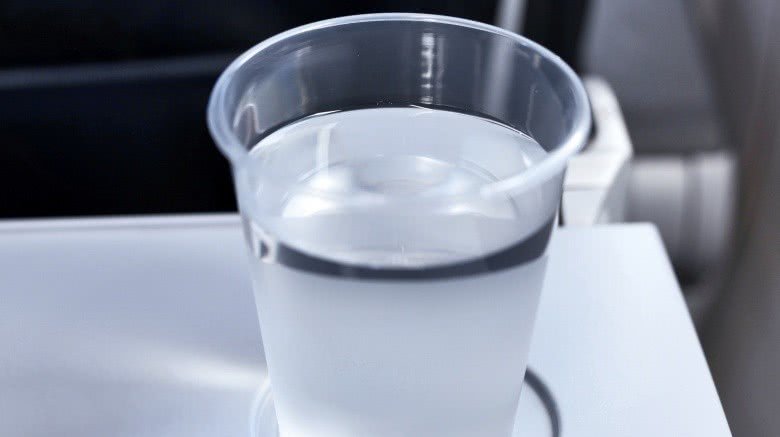Secrets The Airlines Don't Want You To Know
The airline industry has evolved into a well-oiled machine. And really, any organization capable of handling more than 100,000 flights per day all over the world has to know what it's doing. We know it's the safest way to travel, and statistics back that up — but what don't we know about the industry? So much is going on behind closed curtains, it's not surprising we aren't aware of everything happening behind the scenes. So what secrets are the airlines keeping from us and what don't they want us to know?
They overbook all the time, and customers have virtually no legal rights to fight it
Airlines regularly, and intentionally, overbook flights, to maximize their bottom line and — theoretically — keep down ticket prices. In cases with too many butts and not enough seats, airlines are legally required to entice volunteers to give up their seats with cold, hard cash — up to four times the value of the ticket. If that doesn't work, airlines can, for all intents and purposes, knock you out and drag your non-money-wanting behind off the plane like a bag of garbage.
One very public case of this happened in April 2017, when an overbooked United Airlines flight needed room for four employees. Nobody wanted to give up their seat, even with an $800 reward for doing so, so they randomly selected four individuals who would be required to give up their seat. One, a doctor, refused to give up his place, citing he had patients requiring his attention. The doctor's civil disobedience resulted in his head being smashed against an armrest by security guards, and his limp body being dragged through the aisle, much to the other passengers' horror. The video's brutal and more than a bit disturbing, but not as disturbing as United Airlines being more-or-less legally allowed to "re-accommodate" passengers in this manner.
According to United Airlines' Contract of Carriage (along with other airlines), involuntary denied boarding is part of the game. If you fly, you legally accept a company's terms and conditions, meaning you may involuntarily have to forfeit your seat — that's just black-and-white. What's gray, however, is whether or not the airline can open your head with an armrest for simply refusing. As The Atlantic points out, this extreme case of denied boarding is just an example of how little power customers have in an industry dominated by a handful of corporations. Furthermore, customers have virtually no legal foothold against these companies, with most cases never even reaching a judge nor jury, and the ones that do are all but impossible to appeal.
Apparently, from the airline companies' point of view, you'd better just sit down and shut up, unless they want to you shut up and leave. Or else, accept that they'll involuntarily re-accommodate the consequences right into your skull.
Oxygen masks only last 15 minutes
Veteran flyers tend to ignore the presentation that every flight attendant knows all too well. In case of an emergency and the cabin is depressurized, oxygen masks will fall from the ceiling, yadda yadda. Even though we don't often pay attention, we're all aware that the masks are attached to oxygen tanks and we'll be good to go with some sweet and pure O2 in case our nightmares come early. Only, that isn't entirely accurate.
First, if you thought you had an unlimited supply of oxygen pumping into your mask, that's just not accurate. The masks are attached to tanks with a limited supply of about 15 minutes, but even that little fact isn't as surprising as the one the airline industry doesn't advertise: the gas you're breathing doesn't start out as oxygen.
You would think that the easiest means of storing oxygen on a plane is to just store oxygen on the plane, but that's not what's going on. There is a chemical cocktail contained within the tanks that usually includes barium peroxide. As you no doubt remember from your eighth-grade chemistry class, that's one atom of barium and two of oxygen. It's the same thing used in fireworks, and it functions pretty much the same way. The chemical mixture heats up and the two oxygen atoms split off and get sent down the tube and into your lungs. So you don't have to worry about taking in a little bit of extra barium or any noxious chemicals. It's safer and more efficient to have this mixture on board instead of hundreds of canisters of compressed oxygen, which is highly explosive.
Planes can have missing screws
Have you ever sat on an airplane getting ready to take off and noticed that some screws were missing from the wing? If you answered yes, don't worry — you aren't the only one.
An aircraft maintained out of Xiamen, China, was found to have flown for five days with a total of 30 screws missing from one of the wings. It wasn't discovered until the plane passed through Paris and then finally to Boston where a maintenance crew noticed the problem and fixed it. This was by no means an isolated incident.
When an airplane, which can have over two million fasteners and screws, undergoes heavy maintenance, much of it is taken apart. The human factor tends to misplace a few of those. The next time you're putting together an Ikea bookshelf and you find an extra screw or a part missing, you'll figure that it's sturdy enough to get the job done. The same is true for airplanes.
Cabin crews only get paid if the door is closed
Have you ever gotten on a plane and thought that the doors were shut way too early? You might have that feeling if you're stuck on the tarmac for a couple hours waiting for your flight to take off. Why won't they let you off the plane? Thanks to the FAA, the cabin crew can keep you on board for three hours awaiting takeoff, but the real reason they shut the doors prematurely is because they aren't paid until that happens.
This means that a flight attendant is only paid during the duration of a flight. In a post on Quora, one person claiming to be a flight attendant said, "We can work a 13-hour day and only be paid 5. Some of us end up with crappy trips where it is 5 flights all about an hour long each. So while we are boarding, deplaning, etc., all of that is unpaid since that aircraft door is technically open. If you add in delays, that's an even longer day all without pay."
You would think they earned a salary or at least were paid for all of the hours they worked, but they don't. So the next time you're on a plane and they're hurrying you to your seat, help 'em out and try to get on board as efficiently as possible.
Planes are struck by lightning all the time
We've all been there. You're sitting in the window seat and you see a brilliant flash of light off in the distance, usually hundreds or thousands of feet below. Lightning can be as beautiful as it is deadly, but you're safe and cozy up here because planes can't be struck by lightning. Right? Actually, planes are struck by lightning all the time!
Don't stop traveling by air just because of lightning, though. Planes are actually designed to take the lightning strikes. Any airplane will eventually run into a thunderstorm in the clouds. While the lightning can cause some concern to passengers, wind is the real problem for anyone wishing to remain airborne. Again, don't freak out! As Superman once said, statistically, it's still the safest way to travel.
Back in 1963, a Pan American Boeing 707 was struck by lightning, which caused a spark igniting some fuel vapor in a tank. The resulting explosion killed everyone on board. Since then, regulations have been in place requiring airplanes to have systems ensuring this won't happen again. Planes now have fuel tanks and electronic systems designed with built-in lightning protection so lean back (haha) and enjoy the flight!
The seats really are getting smaller
You aren't going crazy and you aren't getting any bigger. Well, you might be, but you're correct in thinking that the seats on airplanes are getting smaller and the distance between them has also shrunk. Since deregulation of the industry in the 1970s, the amount of legroom we have went from an average of 35 inches to just 31 inches today. This has allowed them to squeeze more seats onto the plane, which has also gotten easier due to the seats themselves shrinking from 18 inches to just 16.5.
While these seats have been shrinking, the average person from the industrialized world has only gotten bigger. Since 1980, global obesity rates have actually doubled so while it makes sense to add seats to increase profits, it has become an increasingly bigger problem for the growing population. If they keep this up, you might need to start indicating your height and weight to the airlines before they book you on a flight.
Pilots aren't allowed to eat the same meal for fear of food poisoning
Remember the movie Airplane when both the pilot and copilot foolishly ate the fish course and came down with a horrible bout of food poisoning? Surely, you've seen the movie? Even if you haven't, you can guess the plane was in terrible peril after that. While the film is pure slapstick, it highlights a real fear and a real solution — pilots don't eat the same meal to avoid exactly what happened in the movie.
This isn't an FAA rule, but it is something the airlines and pilots have embraced. Of course, rank has its privileges. "Usually the pilot gets the first class meal and the copilot the business class meal," according to CNN. It's not just due to the concerns raised by a 1980 movie that airlines do this. Foodborne pathogens on airplanes have been a problem in the past.
In 1984, 120 different passengers were struck with salmonella poisoning after eating some contaminated hors d'oeuvres on 13 separate Concorde flights from British Airways. There were even some crew members and pilots who became ill. Good thing airplanes are equipped with lots of really great bathrooms.
Airplanes don't carry as much fuel as you might think
You know how you tend to fill up your car's gas tank before ever departing on a long trip? Yeah, airplanes don't work that way. According to FAA rules, planes are required to take off with only 45 minutes of extra fuel onboard, indicating that they don't necessarily top off the tank prior to each and every flight.
Rules about excess fuel rely on a plane's ability to land at a nearby airport in an emergency, or even along the highway in the United States if it becomes absolutely necessary, but sometimes, that's just not enough. The most common reason a plane is delayed while in the air is due to weather — if someone wasn't paying attention, a plane could need to be diverted much further than the required 45 minutes allows, leaving barely any fumes for the plane to limp its way to where it wants to land. That doesn't always happen either: for example, the recent crash in Colombia that killed the majority of a Brazilian soccer team happened due to the plane running out of fuel. The aircraft was only eight miles from Medellín, but was unable to make the distance or glide into a safe landing area. 71 people died on the flight.
Luckily, fuel exhaustion accounts for just 0.5% of all crashes reported, as the 45 minutes of fuel are tacked onto the precise amount of fuel needed to get from point A to point B. That's still too many crashed, but at least you can fly the friendly skies without fretting that failing to top of equals insta-death.
Overbooking is a huge factor in running an airline
This might be one of the worst-kept secrets of any industry: airlines overbook their flights. Not just for that one flight that might have inconvenienced you back in 1987, but for every flight they manage. They do this for a very reasonable (if coldly capitalistic) reason: they don't make any money if the planes take off at less than 75% capacity, which is called the plane's load factor. They're actually hoping people who made flight arrangements won't make it to the airport in time, will get caught up in security, get delayed in the bathroom, or started having too much fun at the bar and forgot about the plane, because there's a very good chance your seat was also sold to someone else.
One of the ways airlines can successfully overbook a flight is based on their history. They use databases of their own statistical information, which indicates no-show rates for similar flights from dates and times before. They use this information to build a forecast, which helps determine just how many seats they expect to be able to oversell. Most of the time, this works out fairly well, and few people ever need to get bumped (industry lingo for replacing a paying customer who had a seat on a flight, with a different paying customer who had the same seat on the same flight.) Should bumping occur, they will first ask for volunteers and then move on from there, but they're required to compensate travelers when this happens.
Once it's all calculated, the airlines are able to maintain a profit, even while purchasing hotel rooms, meal coupons, and other financial requirements to help their customers who have been bumped from a flight and is about to miss Thanksgiving because Delta's got bills to pay.
Lavatory locks are just for show
Well, you're finally a mile up and you're ready to join this club you heard about. You and your significant other go into the lavatory and lock the door. But that door really isn't locked, and there are some good reasons why.
It's sometimes necessary to be able to open those doors from the outside. Children tend to lock themselves inside and cannot get out. People who feel sick or who have passed out may need help.
You know how there's usually a small metal sign above the window indicating whether a lavatory is occupied or not? Well, you can just lift that metal plate up and slide the door latch back to the vacant position. Avoid doing this if it isn't an emergency. Don't be weird.
Blankets and pillows are hardly ever washed
Tightly packing people into small spaces has never been a great idea in terms of disease prevention. According to the World Health Organization, there isn't a huge risk of grabbing someone else's sickness on a plane, but it did go on to say that infections "may occur between passengers who are seated in the same area of an aircraft, usually as a result of the infected individual coughing or sneezing or by touch." We've all been stuck on a plane and been disgusted or even angered to hear someone coughing. You just know those germs are going to circulate through the tiny cabin until they go straight into your lungs and make you sick. That's when you take comfort and refuge under the thin but clean blanket the airline provided. Unfortunately, you probably made it worse.
Most airlines don't clean the blankets and pillows after each use. You might think so since the attendants hand them to you in a nicely folded and plastic-sealed pack. It all depends on the airline, but US Airways has said they wash blankets every five days. Now just imagine how many people have been under that blanket and coughed, farted, or worse during those five days. It isn't just the blankets either. According to JetBlue, "the pillow and the blanket could be on that flight for four to six flights before being replaced." You think those headphones are brand new since they are shrink-wrapped in plastic? Think again!
People steal those flotation devices
Back to the pre-flight emergency briefing. Maybe your oxygen only lasts 15 minutes, but you can rest assured that you're sitting on top of a flotation device that could save your life in a water landing. It happened on the Hudson when Sully saved the day and folks scrambled for their life preservers, so they aren't just for show. But befor eyou can use it, you have to find one.
It turns out that the top item stolen from airplanes is the flotation device. You would think the flight crew would check to make sure the flotation devices are there. And they do ... prior to the first flight of the day. So if a plane were to make several flights a day (as all planes do), you could be sitting in a seat where someone previously stole your floater. You may want to check that it's there before the plane takes off if you're the type of person who fears the worst. If you find it and think you might want to take one for yourself, please don't. That just makes you a bad person. And it makes you a criminal.
Your pilots may nod off at times
It's a good thing planes fly with the cockpit doors closed all the time, and not just because of all those hijackings in the '60s and '70s. Imagine peering into the cockpit only to find the pilots taking a nap. This might concern the average traveler.
Autopilot is a system onboard all commercial aircraft that does exactly what you'd think: it flies the plane. And it gets used all the time. It just isn't necessary for a pilot to constantly steer the aircraft. The pilots input the coordinates of their destination and once the aircraft is up to its operating altitude, it just takes care of the long haul. As a result, most pilots only fly the plane manually for an average of seven minutes.
Because of this system and the long hours with shift work, about 20 percent of pilots say they have napped on the job. According to one source, "Pilots — generally in violation of regulations — allow each other to nap and remain sharp, avoiding the 'sleep inertia' problem of getting back to acuity following sleep. There is someone else up there to fly the plane if something goes wrong." This doesn't always happen and occasionally, both the pilot and the copilot might nod off. This rarely results in anything and passengers will never know, but it does happen from time to time.
You're probably flying with one or more occupied caskets
Maybe you've been seated next to one person on the plane who is holding an urn. It happens: people die and they want their ashes scattered somewhere far away, so friends and families accommodate. What you may not know is that an airplane might be carrying more remains than you think and odds are, they aren't cremated. That's right! Most commercial aircraft at one time or another have operated as flying hearses.
Every airline has rules and regulations for the transportation of human remains because it's so common. The airlines and funeral homes don't do this for free, though. It could end up costing your loved ones between $1,000 and $6,500 just to get through the fees and shipping costs.
Airplane water tanks are home to a lot of bacteria
You probably think the water on board an aircraft is safely stored in a large tank. Correct! But how often they clean that tank and the amount of bacteria residing in it might actually surprise you. There's a reason you see flight attendants and other members of the crew bringing their own coffee onboard instead of partaking in the free beverages. They know better than to drink the water. Many even advise taking your bottled water without ice when they come by and offer you a drink. That's because the average airplane water tank contains a bacterial relative of E. coli, not something you need in your body.
Fortunately, the airlines are getting the message, and the EPA has now required that they test each and every plane for the presence of the harmful bacteria. But they're only required to do it once a year. According to NBC, "The EPA said it doesn't have any documented cases of people getting sick from airplane drinking water. However, doctors said that doesn't mean it's not happening." So the next time you're asked if you would like an in-flight beverage, ask for anything that doesn't originate from the water tanks. Alcohol, for example, should put you in the clear.
